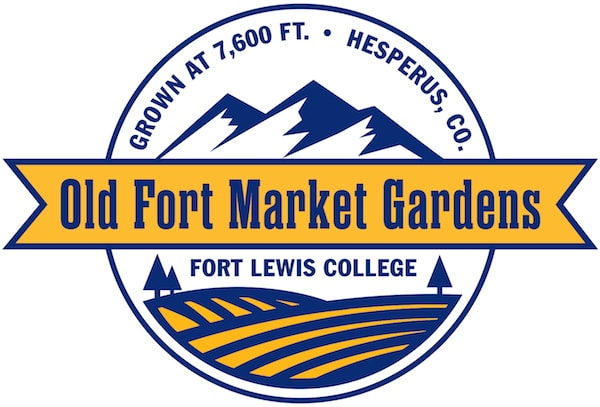
Subscribe: Apple Podcasts | Google Podcasts | Spotify | Email | TuneIn | RSS | More
In Edible-Alpha® podcast #34, Tera interviews Beth LaShell, coordinator of the Old Fort at Hesperus at Fort Lewis College. After serving as an instructor in the Agriculture and Biology Department for 17 years teaching a variety of agricultural-based courses, Beth became the Coordinator of the Old Fort at Hesperus in 2010, including their Sustainable Agriculture Programs. Fort Lewis has an interesting history and draws students from 47 states, including Native Americas who can attend for free and make up 33% of its attendees.
The Old Fort site is 6,300 acres in total, and includes many historic buildings and 450 acres of irrigated land. Water use and rights are heavily regulated in Colorado due to the dry climate, which affects the farming practices available. They sell the products from their various programs through a farm stand, a CSA, and via a retail store, in addition to selling through Sodexo into the Fort Lewis College dining halls.
Their team sees farming education as a continuum where different people are best served by discreet programs, depending on their interests and stage of development. Their sustainable agriculture program includes an educational garden internship, a farmer-in-training program, and market garden incubator. They also have introduced new breeding genetics into their 100 head grass-fed beef herd to reduce fat while remaining tender and finish their calves on 300+ acres of hay fields.
Their incubator program provides educational classes, mentorship, access to land, water, infrastructure (irrigation, harvest sheds, cooler and root cellar), and marketing assistance to aspiring farmers who are either in business or ready to start their own farming business. Farmers in the incubator program work together on 6.5 acres but run independent businesses while sharing infrastructure and knowledge. New farmers generally start with 1/16 to 1/8 acre plots and can choose to find their own distribution channels or can utilize the channels associated with the Old Fort. The maximum amount of time someone can stay in the incubator is five years, with land lease and other fees increasing each year to more closely mimic the real costs of the marketplace by the time that they leave.
Since the program began in 2013, 30 businesses have been accepted into the program with 25 completing the whole season. 73% of those people who completed the program are still farming and 20% are still in food related jobs. Land access post-incubator is still an issue due to the land prices of the Durango area’s tourist economy. This has led the Old Fort to partner with Guidestone Colorado to pair farmers with potential landowners and develop a shared vision of the farm and land use.
The Education Garden is a ½ acre production and demonstration garden devoted to giving Fort Lewis interns an introduction to small-scale sustainable farming through about 120-150 hours of hands-on work. Beth and team developed the Farmer in Training (FIT) program as a stepping-stone between an internship and owning an independent business selling produce. Farmers-in-training are paid and work 2-3 days per week, both in the Education Garden and co-managing a 1-acre plot in the Incubator Field from May through October.
For Beth, diversifying revenue and leveraging partnerships has been key to the success of these programs. They receive very little financial support from the college and expect the programs to cover program staff, participant stipends and operations. This includes an expectation that each program allocate about 20% of its expenditures towards overhead to cover things like maintenance of the site and its infrastructure. Beth is transparent with staff and program participants about the finances of each program to help them make better management decisions and help them understand the management decisions of others.


